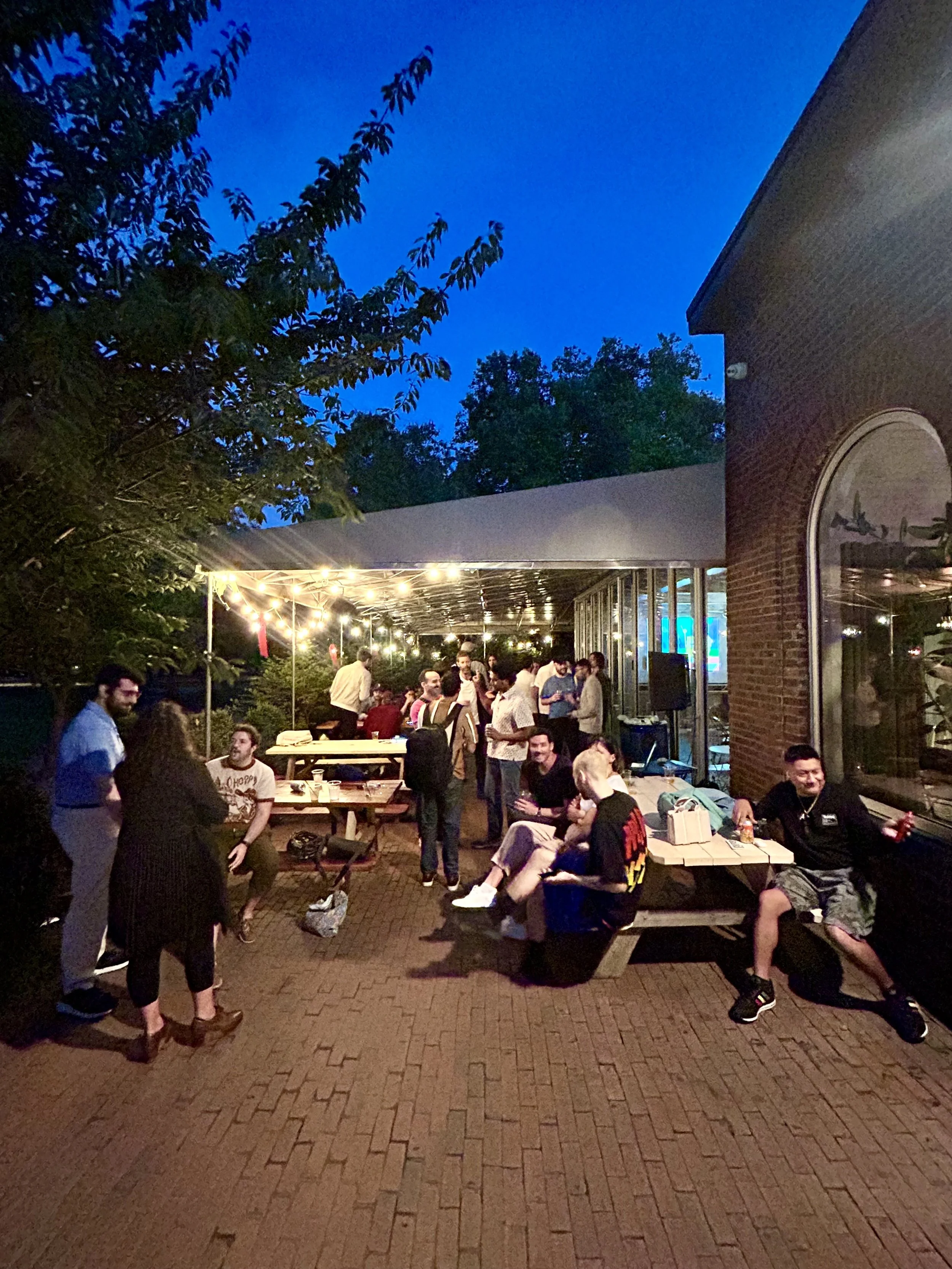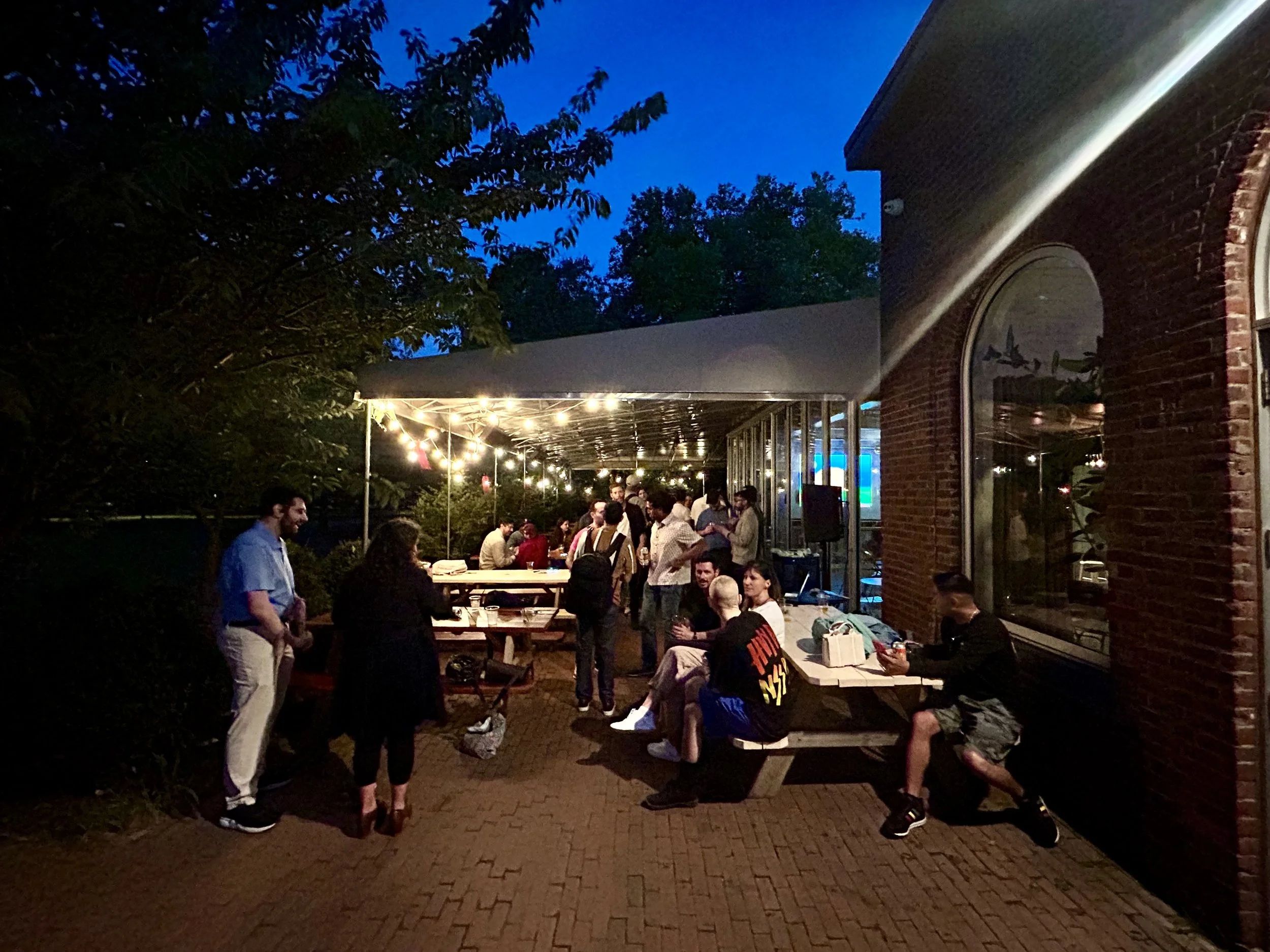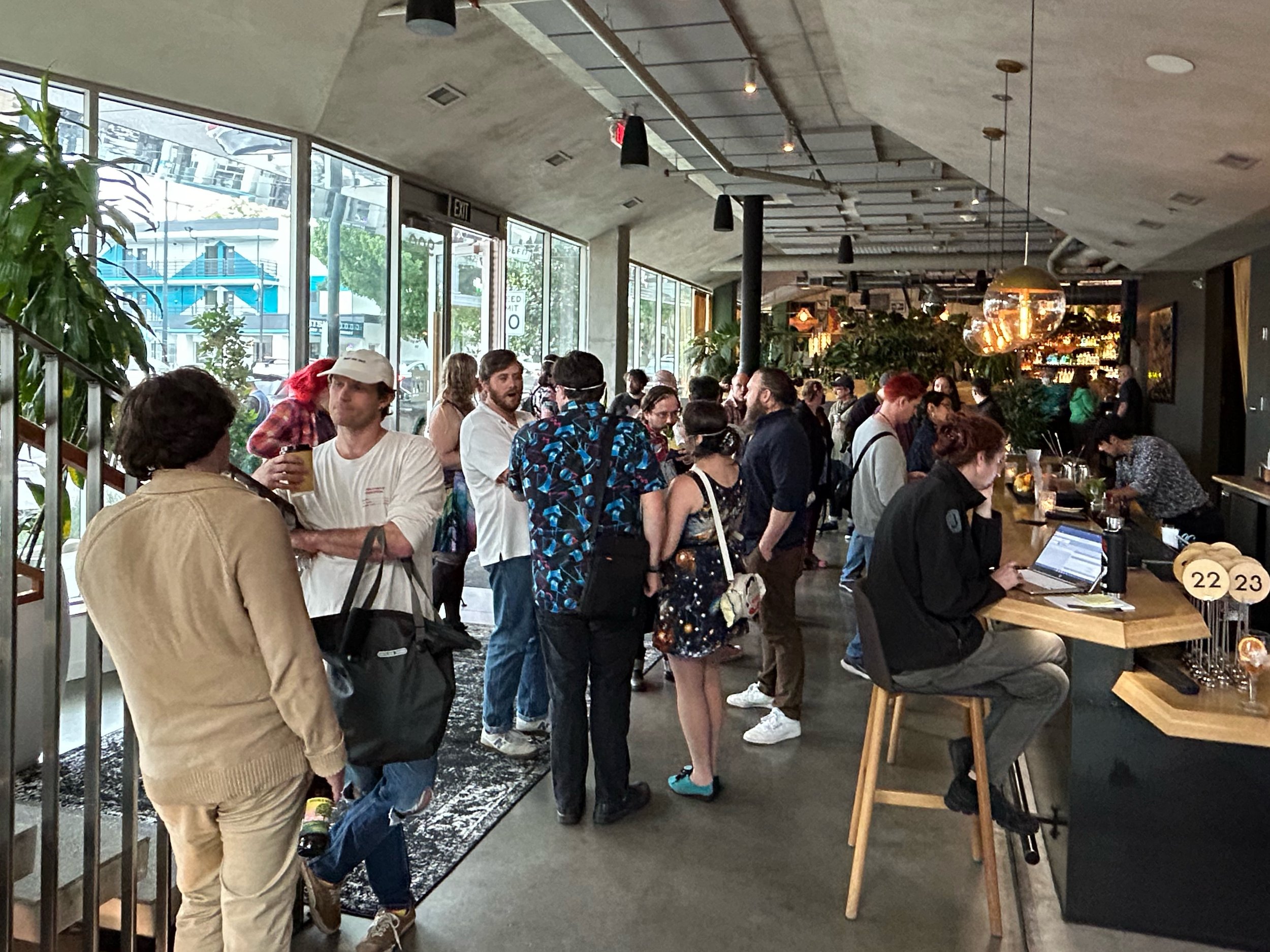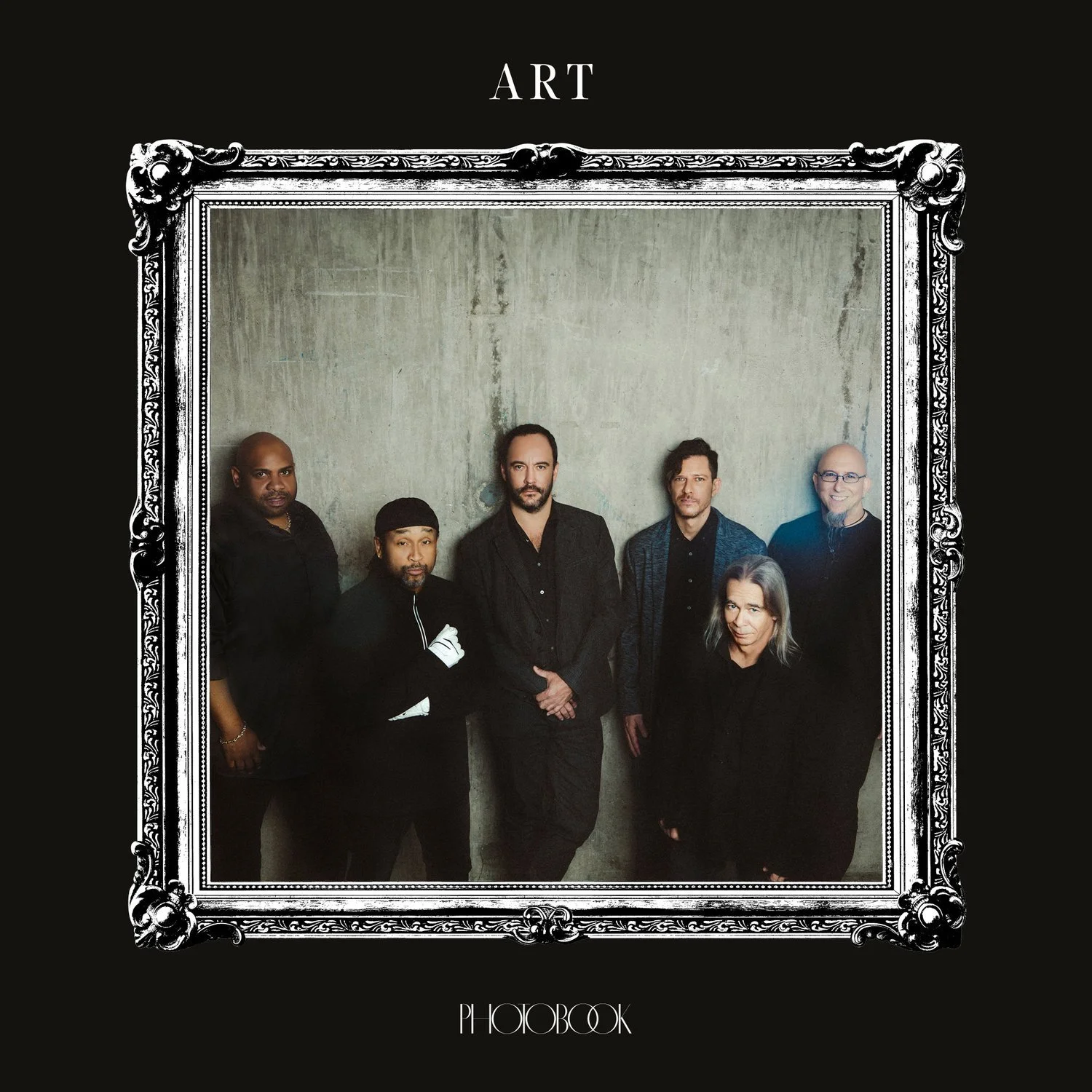Meet the Founder of Hear Me Out, Ben Jackson
A cultivator of support, courage, and leadership, Ben Jackson is the founder of Hear Me Out, a workplace culture firm that helps close the gap between leadership teams’ assumptions and employees’ real experiences. As true believers in authentic connection, Hear Me Out hosts Listening Party, a fresh take on traditional networking where “what do you do?” is off the table. The simple rule creates space for stories, passions, and real conversations.
Ben studied at the University of Pennsylvania, majoring in Computer Science with a minor in Fine Arts. He continues to give back to that community by sharing his workplace culture expertise with MBA students at Wharton’s Venture Lab. Prior to founding Hear Me Out, Ben was the Director of Mobile at Vice Media and a lead iOS engineer at the New York Times. He has been featured in media outlets including The Wall Street Journal, The New Yorker, and The Atlantic, and products he’s built have been highlighted in The New York Times, Forbes, New York Magazine, and more.
For those seeking a new community, Hear Me Out will be hosting more Listening Party events in 2025. Each event features a different guest selector showing their own work highlights along with a curated, genre-specific playlist published to the firm’s Spotify profile.
How has your educational and career path impacted the development of Hear Me Out?
I studied Computer Science with a minor in Fine Arts, which taught me to balance quantitative and qualitative thinking. That mindset shaped my career across roles, from app developer at The New York Times to engineering leader at Vice, where I saw how data works hand in hand with human insight. It’s shaped our work at Hear Me Out, where we use deep listening and data analysis to help leaders understand their culture at both a human and strategic level.
Was there a specific moment that sparked the idea of Hear Me Out where you felt disconnected from others in your workplace?
While I can’t point to one moment that inspired Hear Me Out, I saw a pattern emerge: culture breaks down in small, everyday moments where people feel invisible. Moments like the time my team was moved to a half-finished office without notice, and management gave everyone a nice new pair of headphones to block the construction noise.
Did leadership know how much that impacted morale? Eventually, they found out — but rather than acknowledge it and address people’s feelings, they brought in a shelter to throw a puppy party in a conference room. That's why at Hear Me Out, we help leaders understand their teams’ daily experiences through real conversations and turn the feedback into meaningful change.
When did you realize that workplace culture affects individuals and their surroundings such as their peers, families, and communities?
Ask my wife. Seriously! We’ve each had to deal with the other’s work stress.
Unhealthy workplaces don’t just impact employees. The frustration they create has a ripple effect and it impacts everyone from their families to their communities. You see it in daily interactions. You see it in rising public anger. You see it in historically low trust in institutions. And the institutions with the most power over our lives are the ones that control our health care and ability to pay rent.
A big part of our mission at Hear Me Out is to give leaders insight into how their choices affect real people's lives. It’s easier to justify programs like structured onboarding or flexible work policies when leaders can see how they impact employee retention and well-being. By turning employee feedback into useful insights with clear next steps, we help our clients foster cultures where more people feel valued and heard — and that makes life better for everyone around them.
With your experience in the tech industry, how do you see the workplace culture within the tech industry – specifically – evolving in the next decade?
I expect more of managers’ work to be pushed onto AI. As employees spend more time talking to bots and less talking to each other, it will be even more important to create space for real human conversation and thoughtful, nuanced feedback.
For leaders, this shift makes Hear Me Out’s work even more relevant, especially if large language models begin to handle more routine management tasks. In that case, understanding the human side of workplace culture will be what sets great leaders apart. And to do that, they’ll need reliable systems to gather and act on feedback that automated systems can't capture.
But ultimately, workplace culture will depend on what founders and leaders value and reward. How will their priorities evolve as we face increasing challenges from climate change, AI adoption, and generational shifts in the workforce? The organizations that thrive will be the ones that maintain strong human connections even as they leverage new technology.
How has your experience working with MBA students at the University of Pennsylvania’s Wharton School of Business Venture Lab influenced your work at Hear Me Out?
Teaching at Wharton forces me to clarify the business case for culture strategy. It also gives me a window into the questions our clients grapple with as they think about their own cultures.
I had a student ask me recently, “How do you balance psychological safety with accountability?” That question reveals so much about the assumptions leaders bring to the table. I can think of quite a few ways accountability can fail in a culture where only a fraction of people feel safe to speak up.
At Hear Me Out, we help leaders understand the root causes behind these challenges by making it safe to say what needs to be said. To some leaders, psychological safety feels like coddling. But when a leader hears their own team describe how psychological safety and accountability actually reinforce each other, they can see how a perceived trade-off might actually be a false choice. In the end, our intuitions about others’ motivations don’t always match up with reality.
What inspired you to host Hear Me Out’s Listening Party? Has music played a significant role within your lifetime?
Honestly, in a chat with our account executive Katie Hart, we realized neither of us had been to a networking event that wasn’t cringe. I went to a 500-person rooftop mixer once, and left saying “never again.” Every time someone told me what they did, I was too focused on my own answer to listen to theirs—and of course, so were they.
At Hear Me Out, we prefer spaces where people can be present and feel heard. That's why we started Listening Party, and it’s why the only rule is that no one can ask, “What do you do?” It’s more inclusive, too! Not everyone wants to talk about their job if they even have one right now.
Is there an upcoming project or event from Hear Me Out you can share with us?
I’d invite your readers in New York to keep an eye out for our next Listening Party events in 2025. Each one features a different guest selector. On top of curating a playlist, they also invite their crowd and share highlights of their work. In the past, we’ve invited people like Bijan Stephen from The Nation and Pattricia Britto from YouTube, so every event is an opportunity to engage with a new community.
The music is fantastic, ranging from Latin American Folk to Yacht Rock and Hyperpop, all archived on Hear Me Out.
To find out when the next one is announced, Follow or join the em.
Growing up, did you look up to someone as an aspirational figure?
I’m not too proud to admit that I looked up to Steve Jobs, a famously horrible boss. Like a lot of teens who came of age on the early web, I was taught to idolize tech founders. They’re innovators pushing the boundaries of the possible on behalf of humanity! What’s not to like?
But the more I learned about leadership, the more I came to see Jobs’ success as being in spite of his personality, not because of it. I don’t buy the tortured genius myth; besides excusing bad behavior, it erases too many people’s contributions. Brian Eno has a wonderful turn of phrase, the “scenius,” to refer to the collective intelligence of an entire cultural scene.
That's why at Hear Me Out, we encourage our clients to focus on shared ownership and teamwork. While many successful firms have autocratic leaders, that doesn't mean autocracy drives success. The data shows that employees take real ownership when they feel seen, heard, and valued.
These days, I look to Stewart Butterfield – the founder of Slack – for leadership inspiration. He’s compared great cultures to well-run restaurants, the kind where servers check on each others’ tables. I think that’s a much healthier attitude than the sink-or-swim mentality at most tech companies.
What is a piece of advice you would give to someone who feels stagnant and unheard within their workplace?
If you want leaders to hear your concerns, try to find out who they listen to. Often, it’s easier to influence a close advisor than to try and change a leader’s mind directly. Especially when dealing with sensitive or issues with a personal stake, the messenger matters as much as the message.
At Hear Me Out, we often help people unpack challenges by asking them to rate their feelings about an issue on a scale of 0-10, followed by, “Why is that the right number for you?” Sometimes, they'll refuse to even give a number - and that's revealing too!
When trying to be heard, the key is genuine curiosity about what others believe and why. If they get defensive or hedge, they may already have their mind made up, or they might not be ready for the conversation. When that happens, it's time to find someone who's willing to listen.
Article by Anna Yim, Contributor, PhotoBook Magazine
Tearsheets by Robin Chou, Graphic Design Intern, PhotoBook Magazine













